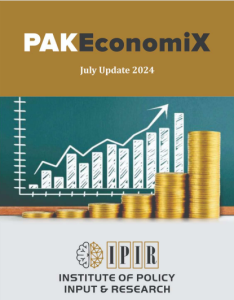Balochistan
In recent weeks, Balochistan has been gripped by a wave of violence, reflecting the region’s persistent instability and security challenges. Numerous incidents, including targeted killings, landmine blasts, and grenade attacks, have resulted in significant loss of life and injuries among both civilians and security personnel. The violence has affected various districts, from Dukki to Quetta, involving complex confrontations between security forces and terrorists, as well as attacks on police and intelligence officials.
The situation has been exacerbated by targeted killings of political and community leaders, journalists, and ordinary citizens, indicating a deliberate campaign to instill fear and disrupt social order. The brutal killing of several individuals while they were asleep, attacks on press club officials, and the targeting of law enforcement highlight the pervasive threat posed by militant groups. Despite operations by security forces resulting in the elimination of some terrorists, the overall security environment remains precarious.
This period of unrest also saw tribal conflicts and revenge killings, adding another layer of complexity to the security landscape. The involvement of tribal militias in retaliatory violence underscores the deep-seated local grievances and the challenges in maintaining law and order. Furthermore, incidents like the setting ablaze of a truck and the explosion at a private residence reflect the broader climate of lawlessness and insecurity.
Overall, the recent spate of violence in Balochistan underscores the region’s enduring volatility and the multifaceted nature of its security problems. From terrorist attacks and tribal feuds to targeted killings and clashes with law enforcement, the incidents reveal a deeply troubled province struggling with both insurgency and internal conflicts, requiring comprehensive and sustained efforts to achieve stability and peace.
Khyber Pakhtunkhwa
Recently, the Khyber Pakhtunkhwa region has been engulfed in a wave of violence, reflecting ongoing tensions and the significant challenges faced by security forces. The area has seen numerous attacks on security posts, police stations, and individual officers, highlighting the persistent threat from militant groups. Despite these relentless assaults, security personnel have shown remarkable resilience, often repelling attacks and conducting successful operations against terrorists.
Incidents across the region, from Lakki Marwat to North Waziristan, demonstrate the varied nature of the threats, including direct assaults on security posts, landmine blasts, and targeted killings of police officers. The violence has not only claimed the lives of several security personnel but also injured many others, including civilians, revealing the broader impact on local communities.
Security forces have managed to thwart numerous attacks, often preempting terrorist actions and eliminating key militant figures involved in extortion, murder, and other heinous crimes. However, the cost has been high, with several security personnel embracing martyrdom in the line of duty.
These events accentuate the ongoing struggle in Khyber Pakhtunkhwa to maintain law and order amidst a volatile security environment. The continuous attacks by militants highlight the need for sustained and coordinated efforts to combat terrorism and ensure the safety and stability of the region. Despite the challenges, the dedication and bravery of the security forces remain a crucial bulwark against the tide of violence, striving to restore peace and protect the local populace.
Punjab
Recently, the security situation in various regions of Punjab has been marked by a series of violent encounters and significant operations by law enforcement agencies. These incidents highlight the ongoing battle against terrorism and organized crime, as well as the remarkable resilience and effectiveness of the police and CTD (Counter-Terrorism Department) forces.
In Dera Ghazi Khan, a heavily armed terrorist attack on the Hazrat Umar Farooq check post was successfully repulsed by the police, who were prepared due to advanced intelligence. This intense confrontation, lasting over four hours, was part of a broader pattern of repeated assaults on security posts in the region. Meanwhile, in Rawalpindi, CTD police eliminated two terrorists linked to the defunct Tehrik-i-Taliban Pakistan (TTP), who had been involved in numerous violent acts, including the recent killing of a police constable.
In a separate operation, Lahore police dismantled an international drug smuggling ring known as ‘Jordan’s gang’, seizing large quantities of narcotics and arresting several key members. This raid underscored the ongoing efforts to combat drug trafficking networks operating within the country. Additionally, in Rahimyar Khan, police clashed with the notorious Lund gang, resulting in the deaths of both gang members and abductees, highlighting the persistent threat of criminal gangs in the region.
Moreover, a significant incident occurred in Lahore where four terrorists, including a key figure associated with the TTP, were killed during an exchange of fire with the CTD. These terrorists were involved in the targeted killing of police personnel and were attempting a violent escape from custody.
These events collectively depict a landscape of persistent threats from both terrorist groups and criminal syndicates in Pakistan. The concerted efforts by the police and CTD to preempt and neutralize these threats, often at great personal risk, demonstrate their critical role in maintaining security and order. The ongoing operations and the successful interdiction of criminal activities underscore the continuous need for vigilance and robust counter-terrorism strategies to ensure the safety and stability of the region.
Sindh
In recent times, the security situation in Sindh, particularly in Karachi and the surrounding districts, has been marked by a series of violent incidents and criminal activities, reflecting the persistent challenges faced by law enforcement agencies. The region has seen a rise in highway robberies, kidnappings, and targeted killings, indicating the active presence of organized crime and militant groups.
In Karachi, incidents of passengers being looted at gunpoint highlight the lawlessness affecting daily commuters. Similarly, the Kacha riverine areas have become notorious for rampant dacoity and kidnappings, with multiple gangs operating with impunity. These criminal networks have been involved in abducting citizens, including key personnel like polio vaccination team leaders, and demanding ransoms or exchanging hostages for detained gang members.
Joint operations by police and security agencies have led to some successes, such as the arrest of suspects linked to foreign intelligence agencies and the recovery of abducted individuals. However, the violent confrontations often result in casualties on both sides, underlining the high stakes in these operations. Moreover, targeted killings by unknown assailants and acts of terrorism, including bomb blasts claimed by separatist groups, further exacerbate the region’s instability.
The overall scenario in Sindh highlights the persistent threat posed by both organized crime syndicates and militant groups. Despite ongoing efforts by police and security agencies to curb these activities, the frequency and boldness of these incidents reveal the significant challenges in restoring law and order. Continuous and coordinated efforts are essential to address these multifaceted security issues and ensure the safety of the local populace.
Afghanistan
The security situation in Afghanistan remains volatile, marked by a series of violent incidents involving various militant groups and clashes with security forces. Attacks on religious institutions, such as the recent assault on a Shia mosque in Herat province claimed by ISIS-K/Daesh, highlight the ongoing threat to civilian populations. Similarly, clashes between security forces and protesters in Badakhshan province, stemming from attempts to eradicate poppy cultivation, underscore the socio-economic challenges facing the region.
The conflict in Afghanistan has also spilled over into neighboring Pakistan, with reported incursions by Afghan Taliban forces into Pakistani territory. These incidents have led to armed confrontations along the Pak-Afghan border, resulting in casualties on both sides. The intensification of cross-border firing and retaliatory measures by Pakistani forces further exacerbate tensions in the region.
The broader implications of these developments are significant, affecting regional security and stability. The involvement of militant groups like ISIS-K/Daesh and Afghan Taliban in cross-border activities underscores the complexity of the security landscape and the challenges faced by both Afghan and Pakistani authorities in combating terrorism and maintaining law and order.
Efforts to address these challenges require coordinated action and cooperation between the governments of Afghanistan and Pakistan, as well as support from the international community. The need to address underlying socio-economic factors contributing to instability, such as poverty and illicit drug cultivation, remains a critical aspect of long-term peacebuilding efforts in the region.
India
One soldier was killed, and four others were injured in an attack on an Indian Airforce convoy in the Poonch district. Indian security forces claimed to have killed three Kashmiri youths, including Basit Dar, in a staged encounter in the Redwani Payeen area of the Kulgam district on the 4th and 8th of May 2024. Indian Army Chief General Manoj Pande visited the Corps HQ at Leh Cantonment, where he received a briefing on the security situation and operational readiness of Indian troops facing the Chinese army along the Line of Actual Control (LAC) in Eastern Ladakh on the 10th of May 2024.
Regarding RAW’s covert operations in Canada, Canadian police presented four arrested individuals of Indian origin before a court in Canada on the 5th and 11th of May. These individuals, identified as Karanpreet Singh, Kamalpreet Singh, Karan Brar, and Mandeep Singh, are linked to the murder of pro-Khalistan Sikh leader Hardeep Singh Najjar in June 2023. India dismissed these allegations as baseless and did not cooperate with the Canadian government’s investigations. Ongoing inquiries aim to uncover more individuals involved, including the alleged role of Indian intelligence agencies in the assassination. Recent reports by the Canadian Security Intelligence Service (CSIS) in 2023 implicated three countries, including India, in interference in Canadian internal affairs and espionage. Additionally, a report by “The Guardian” on the 5th of April revealed alleged murders of around 20 individuals in Pakistan by Indian intelligence operatives since 2020.
In the context of Indian elections, the fourth phase of the Indian Parliamentary (Lok Sabha) elections, spanning from the 19th of April to the 1st of June 2024 for the 524-seat house, took place on the 13th of May. This phase covered 96 constituencies across 10 states and union territories, including the disputed region of Jammu & Kashmir. The main contenders, alongside local and regional parties, are the Bhartiya Janata Party led by Prime Minister Narendra Modi and the Indian National Development Inclusive Alliance led by senior Congress leader Rahul Gandhi, comprising an alliance of 26 political parties. The election process, initiated the previous month, has already completed three phases on the 19th of April, 26th of April, and 7th of May. The Election Commission is scheduled to announce the polling results on the 4th of June 2024.
Iran
The Iranian nation, led by the Islamic Revolution’s Ayatollah Syed Ali Khamenei, participated in the 2nd round of the 12th Parliamentary elections on May 10th. The initial phase took place on March 1st this year, with 61 million eligible voters tasked with electing 290 members of the house “Majlis” from a pool of 15,000 candidates for a four-year term.
During Indian Shipping Minister Sarbananda Sonowal’s visit to Tehran, India and Iran signed a 10-year agreement, extendable further, to enhance the development and operational efficiency of the terminal at Iran’s strategic Chabahar port, located approximately 90 km from Pakistan’s Gwadar port. The primary objective is to enhance connectivity to Afghanistan and other landlocked Central Asian countries, facilitating a land route to Russia. This collaboration will enable India to bolster trade and import/export activities with these nations via a sea route that bypasses Pakistan. In response to the agreement, a US State Department official, Vedant Patel, stated that the India-Iran deal for the Chabahar port’s development is not exempt from US sanctions on Iran, without specifying potential sanctions on India, its close strategic partner. The US State Department also recently alerted Pakistan about the risk of sanctions related to the construction of the 80 km long Pakistan-Iran Gas Pipeline project. The responses from China, Russia, regional countries, and the international community are yet to unfold




